Trailblazing Aboriginal health leaders focus of recent CVRN 2024 event
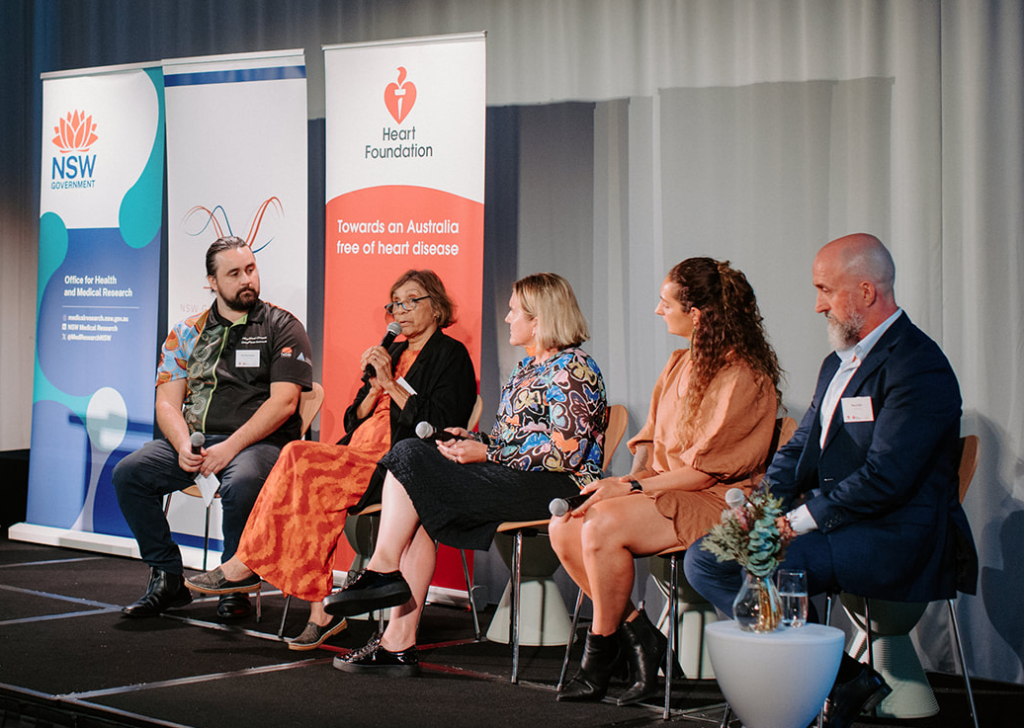
The Aboriginal word ‘burbangana’ means ‘take hold of my hand and help me up’. It inspired the curation of artworks featured in the Yiribana Gallery, located on Gadigal land in the Art Gallery of NSW. This collection was viewed by attendees as they arrived at the recent Cardiovascular Research Network (CVRN) 2024 Showcase and Ministerial awards for excellence in cardiovascular research. The works explore the philosophies for living, cultural inheritance, complexities of history and strength of resilience. These big picture considerations of wellbeing underpin the health of all Aboriginal people. So during the Welcome to Country address, Uncle Michael West invited Australians to, “Respect our totems, walk with us, work with us, sit down and listen to us and learn from us.” The theme of the event was First Nations heart health: Healing and strength for the future. During the evening, Aboriginal health leaders and representatives from NSW Health spoke of the important collaborative projects they are involved with in Aboriginal communities throughout NSW.
The evening was hosted by award winning STEM journalist and broadcaster, Rae Johnston, a proud Wiradjuri Woman. The Governor of NSW, Margaret Beazley and the Minister for Medical Research, the Hon, David Harris MP, were also in attendance. Professor Sandra Eades, AO and Chief Medical Advisor, First Nations Health for the Heart Foundation, and proud Noongar woman, spoke of the importance of ensuring self-determination and a wholistic approach to health along with community-led research involving Aboriginal and Torres Strait Islander people, who represent the world’s longest continuous living culture.
Dr Jean Frederic Levesque, Deputy Secretary, Clinical Innovation and Research and Chief Executive for the NSW Agency for Clinical Innovation spoke at the Showcase event about the important initiatives being implemented by NSW Health through the Office for Health and Medical Research. “I am excited that NSW Health is opening a targeted call for research to improve the cardiovascular health of Aboriginal people. The Office for Health and Medical Research has been consulting with Aboriginal stakeholders about all aspects of this process, from governance to eligibility to the shape of the grants that will be offered. I look forward to hearing about the innovative research that will come out of this, and I hope that some of the researchers who attended the CVRN Showcase and Ministerial awards event may participate in this important work in the future,” said Levesque.
The event was also an opportunity for the following Aboriginal health leaders to discuss the life-changing impacts and outcomes of their outstanding ‘in-community’ work in a range of priority health areas:
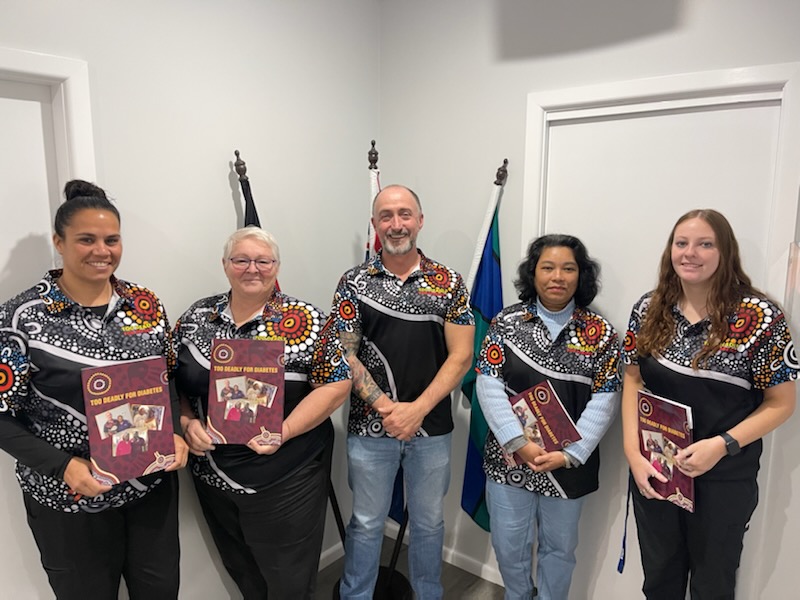
Ray Kelly – Diabetes Type 2
A proud Gomeroi man, Ray Kelly, is a researcher and award-winning exercise physiologist who developed and leads the program, Too Deadly for Diabetes. The co-designed health initiative is substantially improving health outcomes for Indigenous Australians with Type 2 Diabetes. Too Deadly for Diabetes runs mostly in regional NSW and educates and supports people to make substantial lifestyle changes that reduce their blood glucose levels and medication intake. Kelly’s work so impressed international TV presenter and medical health expert, Dr Michael Mosely, that he invited Kelly to co-host the SBS series, Australia’s Health Revolution.
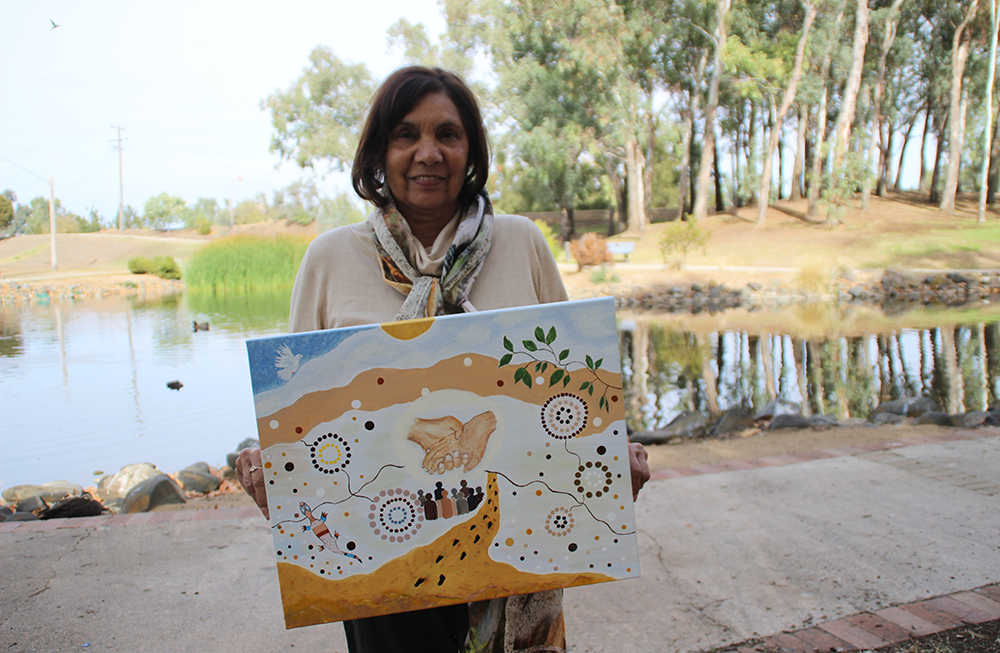
Aunty Audrey Trindall – Stroke Recovery
Aunty Audrey Trindall, a proud Gomeroi woman and skilled health educator, is sharing her lived experience through the Yarning Up After Stroke program, piloted in the Hunter New England Local Health District. She has been involved in co-design of the program, which she also helps to facilitate. Aunty Audrey draws on 35 years of valuable experience working in community with the elderly, families and mums and bubs. She uses art, yarning and storytelling in her work, to create culturally safe spaces where Aboriginal people can receive support while feeling heard and empowered. Aunty Audrey believes that understanding the holistic needs of Indigenous people is key to closing the health gap.
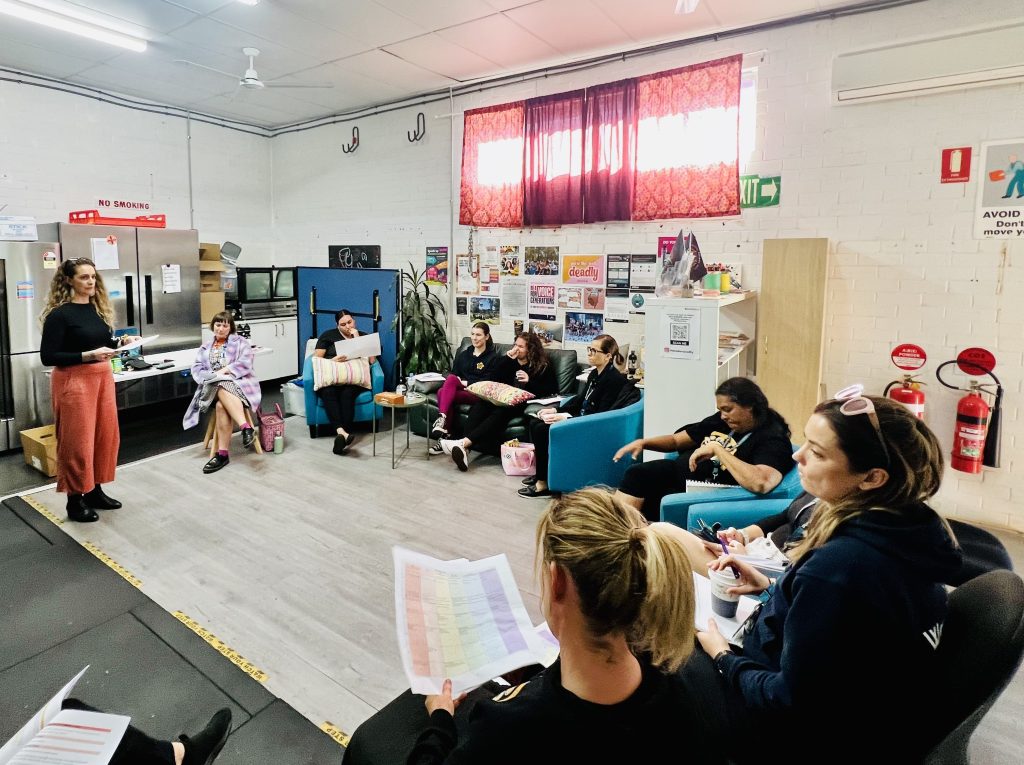
Michelle Kennedy – Smoking Cessation
Michelle Kennedy, is a proud Wiradjuri woman, researcher and Associate Professor at the University of Newcastle, where she is Assistant Dean in the area of Indigenous Strategy and Leadership. Passionate about placing power in the hands of Indigenous people, she conceptualised the Which Way smoking cessation program. This was then developed and piloted with ongoing partnership, collaboration and co-design led by Aboriginal and Torres Strait Island people. It will be rolled out across NSW this year and ensures that Indigenous women have access to culturally responsive support for smoking and vaping cessation.
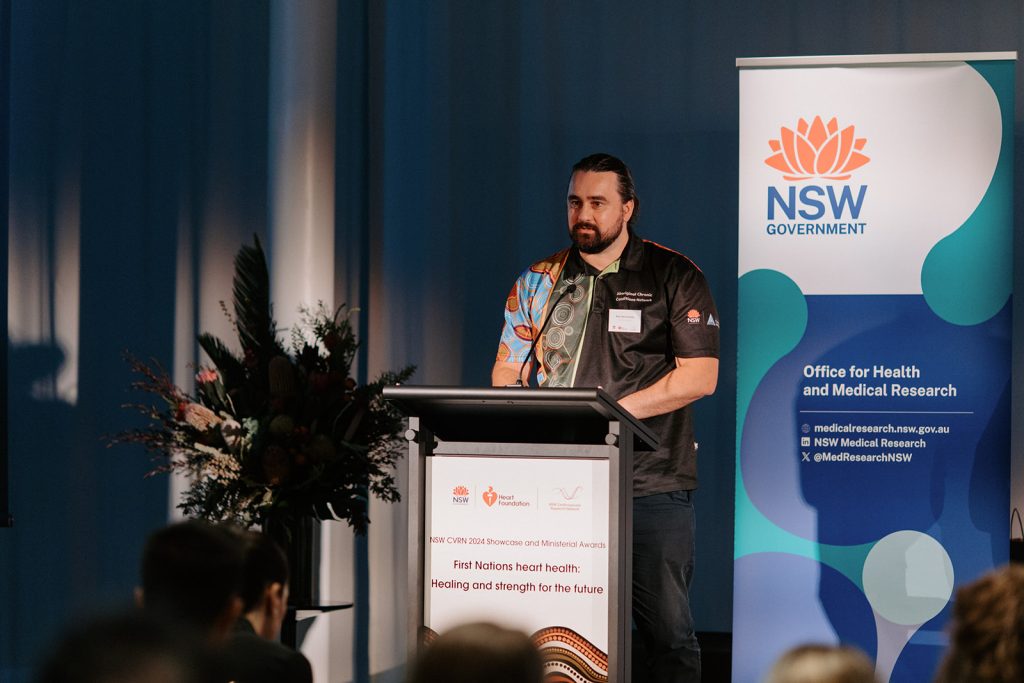
Kiel Hennessey – Indigenous Healthcare Innovation
Kiel Hennessey, a proud Wiradjuri man, is Manager of the Aboriginal Chronic Conditions Network at NSW Health. This sits in the Aboriginal Health and Wellbeing Stream of the Agency for Clinical Innovation (ACI). Hennessey works in constant and close consultation with Aboriginal leaders to support the implementation of Aboriginal-led innovations in high priority areas including cardiac, diabetes and renal (kidney) health. These projects involve co-design which he believes is pivotal to sharing power and ensuring culturally safe, respectful and appropriate health services.
Updated 1 year ago